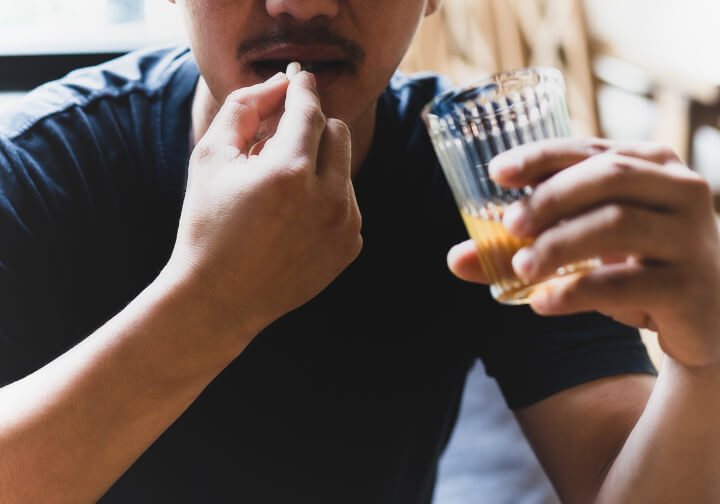
Why we shouldn't drink alcohol on antibiotics
Alcohol and drugs are two substances that affect our bodies, each in their way. However, we should be careful when combining antibiotics and alcohol. Let's explore this topic further.
Alcohol and its effect on the body:
Alcohol affects the central nervous system and can cause relaxation, euphoria or, on the contrary, deepen sadness. It affects our ability to make decisions and coordinate. It is metabolized in the liver, which can have consequences for other substances that are processed in the liver, including some drugs.
Antibiotics and their purpose:
Antibiotics are drugs used to treat bacterial infections. There are many different types of antibiotics, and each may have its mechanism of action. They are designed to kill or slow the growth of bacteria, thereby helping the immune system fight infection.
Why we should not drink alcohol while taking antibiotics:
The overall burden on the body: The human body responding to the infection is in a stressed and weakened state. Alcohol consumption puts even more strain on the body and is certainly not good for it. It is always better to relieve the body and not add more stress factors for it to deal with.
Reduced effectiveness of treatment: Some antibiotics may have reduced effectiveness when combined with alcohol. This can make treatment less effective than it should be.
Increased risk of side effects: Drinking alcohol while taking antibiotics can increase the risk of side effects such as dizziness, nausea, or even increased risk of liver damage.
The burden on the liver: Both alcohol and antibiotics are metabolized in the liver. Taking them together increases the burden on the liver, which has to cope with them. Drinking alcohol can prolong the healing process.
With increasing age, the body's ability to cope with illness, its medications and alcohol decreases. Alcohol also has a negative effect when combined with psychopharmaceuticals, neuropharmaceuticals and antiepileptics.
When taking antibiotics, it is simply best to avoid alcohol consumption altogether. If you have questions or concerns, consult your doctor or pharmacist, who can provide additional information about interactions and risks. Your health should always come first.
Opening hours during Christmas and New Year's
Dear clients,
we would like to announce a change of opening hours of Unicare during Christmas time and New Year's.
The change of opening hours:
24.12. CLOSED
25.12. CLOSED
26.12. CLOSED
29.12. 8:00 - 18:00
30.12. 8:00 - 18:00
31.12. CLOSED
1.1. CLOSED
2.1. 8:00 - 20:00
We wish you a merry Christmas and a Happy New Year!
Unicare Medical Team
